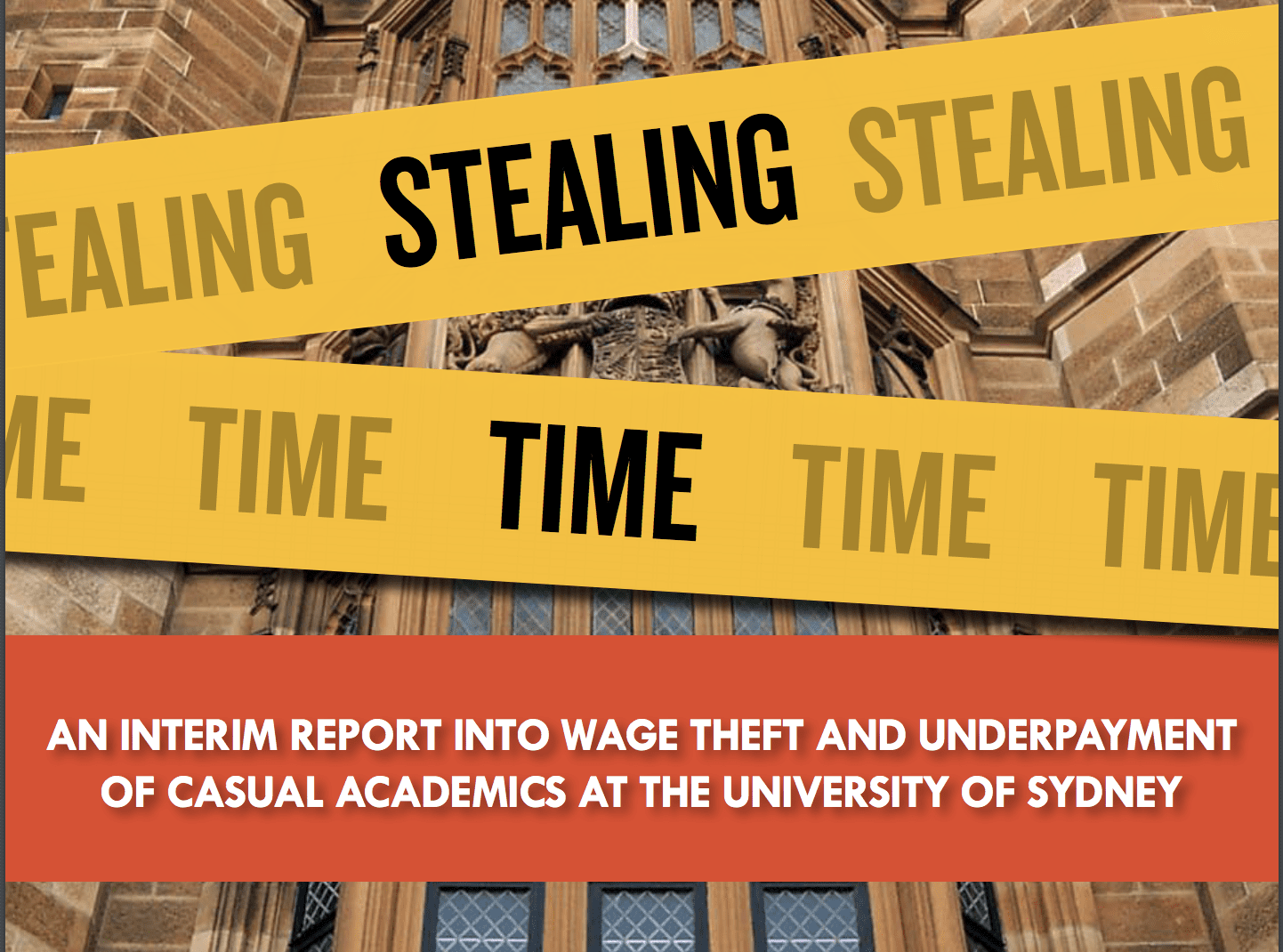Sydney University’s Casuals Network has released its interim report today into wage theft and underpayment at the University.
The report follows the earlier survey conducted by the Network in June which highlighted that casual academics were bearing the costs of COVID-19, though stressed that such precarity and exploitation existed prior to the coronavirus pandemic.
The report found that 84% of participants performed unpaid labour during the audit, and that casual academics worked an average of 6.6 unpaid hours per week.
On average, for every dollar paid to casual staff, they were not paid 75 cents, amounting to an average of 43% of work going unpaid.
Critically, on average women had 2.5 times the amount of wage theft compared to men, at $3837 and $1541, respectively.
Further, those audited were only given 48 minutes a week on average to complete all administrative work, though casuals reported working an average of 4.8hours a week on such tasks.
The highest amount of individual wage theft amounted to $11,469, per the audit. The staff member has worked as a casual academic at the University for 6 years and has not been given permanent work. She was only paid 13 hours for the entire semester to complete administrative work to coordinate a subject with over 70 students.
Currently, ten universities have had to repay casualised staff unpaid wages, with the University of Sydney admitting to wage theft of almost $9million.
Casualisation within the Australian tertiary education sector has skyrocketed over the past three decades, with estimates of 70% casualisation at some universities.
The NTEU’s 2019 FASS survey of permanent and fixed-term staff indicated that the majority of staff were working more than 50 hours per week, compared to the 37.5 hours per week as set out in the Enterprise Agreement. Per the June survey, casuals worked an average of 50 hours unpaid.
Given the report is interim, it only presents the Network’s mid-semester findings, meaning that an analysis of hours spent marking assignments is excluded, given this generally occurs towards the end of semester.
As a result, the Network estimates their “overall findings to be conservative”, and are working on an end-of-semester report which will include more comprehensive data.





